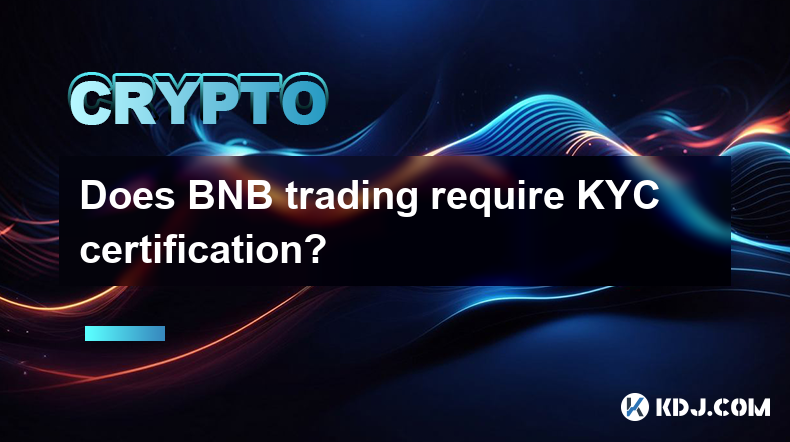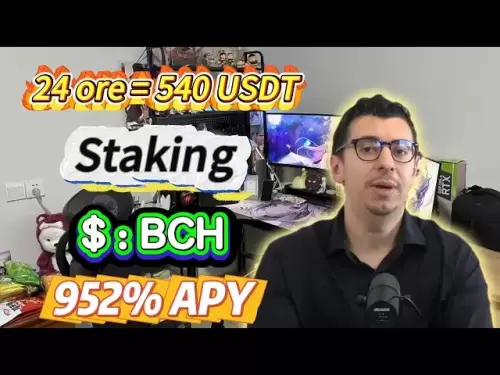-
 Bitcoin
Bitcoin $108,338.0981
-0.13% -
 Ethereum
Ethereum $2,566.4077
1.16% -
 Tether USDt
Tether USDt $1.0001
-0.01% -
 XRP
XRP $2.2841
-2.59% -
 BNB
BNB $658.5241
-0.17% -
 Solana
Solana $150.3819
-1.08% -
 USDC
USDC $0.9999
-0.01% -
 TRON
TRON $0.2864
-0.24% -
 Dogecoin
Dogecoin $0.1694
0.24% -
 Cardano
Cardano $0.5813
-0.72% -
 Hyperliquid
Hyperliquid $37.8292
-4.60% -
 Bitcoin Cash
Bitcoin Cash $503.3593
1.69% -
 Sui
Sui $2.8784
-0.69% -
 Chainlink
Chainlink $13.4784
-0.43% -
 UNUS SED LEO
UNUS SED LEO $9.0793
-0.27% -
 Stellar
Stellar $0.2537
-0.41% -
 Avalanche
Avalanche $18.0047
-0.23% -
 Shiba Inu
Shiba Inu $0.0...01181
1.56% -
 Hedera
Hedera $0.1608
0.49% -
 Toncoin
Toncoin $2.7568
-0.93% -
 Litecoin
Litecoin $86.4121
-0.20% -
 Monero
Monero $313.7273
-0.86% -
 Polkadot
Polkadot $3.3715
-0.66% -
 Dai
Dai $1.0001
0.01% -
 Ethena USDe
Ethena USDe $1.0004
0.03% -
 Bitget Token
Bitget Token $4.2902
-0.54% -
 Uniswap
Uniswap $7.5361
2.73% -
 Aave
Aave $285.6090
-0.55% -
 Pepe
Pepe $0.0...09958
0.28% -
 Pi
Pi $0.4560
-0.65%
Does BNB trading require KYC certification?
2025/04/21 02:07

The question of whether BNB trading requires KYC (Know Your Customer) certification is a common concern among cryptocurrency enthusiasts. BNB, or Binance Coin, is the native cryptocurrency of the Binance exchange, one of the largest and most popular platforms for trading digital assets. The necessity for KYC certification can vary depending on the platform and the type of trading you wish to engage in. In this article, we will explore the KYC requirements for trading BNB on various platforms, focusing primarily on Binance, as well as other exchanges where BNB is available.
Understanding KYC and Its Importance in Cryptocurrency Trading
KYC, or Know Your Customer, is a process used by financial institutions and cryptocurrency exchanges to verify the identity of their clients. The primary goal of KYC is to prevent illegal activities such as money laundering, fraud, and terrorist financing. By requiring users to provide personal information and documentation, exchanges can ensure compliance with regulatory standards and create a safer trading environment.
In the context of cryptocurrency trading, KYC is crucial for maintaining the integrity of the platform and protecting users' assets. Exchanges that implement KYC procedures can better track and monitor transactions, reducing the risk of illicit activities. However, the extent to which KYC is required can vary between different platforms and types of transactions.
KYC Requirements for Trading BNB on Binance
Binance, being the originator of BNB, has specific KYC requirements for users who wish to trade on its platform. Binance offers different levels of account verification, each with varying levels of access and functionality.
Level 1 Verification: This is the basic level of verification on Binance. To complete Level 1, users need to provide their email address and phone number. This level allows for limited trading and withdrawal capabilities.
Level 2 Verification: To achieve Level 2 verification, users must submit their full name, country of residence, and a government-issued ID. This level of verification grants access to higher withdrawal limits and additional features on the platform.
Level 3 Verification: This is the highest level of verification on Binance, requiring users to provide proof of address in addition to the documents required for Level 2. Level 3 verification offers the highest withdrawal limits and full access to all features on the platform.
For trading BNB specifically, Binance typically requires at least Level 2 verification. This means that users must complete the KYC process by submitting their personal information and a government-issued ID to engage in BNB trading. Without completing this level of verification, users may be restricted in their ability to trade BNB or other cryptocurrencies on the platform.
KYC Requirements for Trading BNB on Other Exchanges
While Binance is the primary platform for BNB trading, the cryptocurrency is also available on other exchanges. The KYC requirements for trading BNB on these platforms can differ, but most reputable exchanges will require some form of identity verification.
Coinbase: Coinbase, a well-known cryptocurrency exchange, requires users to complete a KYC process before they can trade BNB. Users must provide their full name, date of birth, address, and a government-issued ID to verify their account.
Kraken: On Kraken, another popular exchange, users must complete a KYC verification process to trade BNB. This involves submitting personal information, including a government-issued ID and proof of address.
Huobi: Huobi, a global cryptocurrency exchange, also requires KYC verification for BNB trading. Users must provide their personal information and a government-issued ID to complete the verification process.
It is important for users to check the specific KYC requirements of each exchange before attempting to trade BNB, as these requirements can change and may vary depending on the user's location.
Trading BNB Without KYC: Is It Possible?
While most reputable exchanges require KYC verification for trading BNB, there are some platforms that offer non-KYC or minimal KYC options. These platforms are often referred to as decentralized exchanges (DEXs) or peer-to-peer (P2P) trading platforms.
Decentralized Exchanges (DEXs): DEXs like Uniswap and PancakeSwap allow users to trade BNB without completing a traditional KYC process. These platforms operate on blockchain technology and do not require users to submit personal information to trade.
Peer-to-Peer (P2P) Platforms: P2P platforms such as LocalCryptos and Paxful enable users to trade BNB directly with other individuals. While some P2P platforms may require minimal KYC, others allow users to trade without any identity verification.
However, it is important to note that trading BNB without KYC on these platforms comes with certain risks. Without KYC verification, users may be more vulnerable to scams, fraud, and other illicit activities. Additionally, non-KYC platforms may have lower liquidity and fewer trading options compared to centralized exchanges.
How to Complete KYC Verification for BNB Trading
If you decide to trade BNB on a platform that requires KYC verification, you will need to follow a series of steps to complete the process. Here is a detailed guide on how to complete KYC verification on Binance:
Log in to your Binance account: Start by logging in to your Binance account using your email address and password.
Navigate to the KYC verification page: Once logged in, go to the "User Center" and select "Identification" to access the KYC verification page.
Select your verification level: Choose the level of verification you wish to complete (Level 2 or Level 3). For BNB trading, Level 2 is typically sufficient.
Enter your personal information: Fill out the required fields with your full name, date of birth, and country of residence.
Upload your documents: You will need to upload a clear, color image of a government-issued ID, such as a passport or driver's license. If you are applying for Level 3 verification, you will also need to upload a proof of address document, such as a utility bill or bank statement.
Submit your application: After uploading your documents, review your information and submit your KYC verification application.
Wait for approval: The verification process may take a few hours to a few days, depending on the volume of applications. You will receive an email notification once your verification is complete.
Once your KYC verification is approved, you will be able to trade BNB and other cryptocurrencies on Binance with higher withdrawal limits and full access to the platform's features.
Frequently Asked Questions
Q: Can I trade BNB anonymously on Binance?
A: No, Binance requires at least Level 2 KYC verification for trading BNB. This means you must provide your personal information and a government-issued ID to trade BNB on the platform.
Q: Are there any risks associated with trading BNB on non-KYC platforms?
A: Yes, trading BNB on non-KYC platforms can expose you to higher risks of scams, fraud, and other illicit activities. Additionally, these platforms may have lower liquidity and fewer trading options compared to centralized exchanges.
Q: How long does the KYC verification process take on Binance?
A: The KYC verification process on Binance can take anywhere from a few hours to a few days, depending on the volume of applications. You will receive an email notification once your verification is complete.
Q: Can I trade BNB on other exchanges without KYC?
A: It depends on the exchange. Some decentralized exchanges and peer-to-peer platforms allow trading BNB without KYC, but most reputable centralized exchanges require some form of identity verification.
免責聲明:info@kdj.com
所提供的資訊並非交易建議。 kDJ.com對任何基於本文提供的資訊進行的投資不承擔任何責任。加密貨幣波動性較大,建議您充分研究後謹慎投資!
如果您認為本網站使用的內容侵犯了您的版權,請立即聯絡我們(info@kdj.com),我們將及時刪除。
- Onyxcoin(XCN)vs. Solana(Sol):加密遊戲中的一個有希望的賭注?
- 2025-07-09 00:30:12
- CoreWeave的大膽下注:AI如何重塑比特幣採礦
- 2025-07-09 00:30:12
- Coinbase(Coin)IPO閃回:集會過度擴展還是剛開始?
- 2025-07-08 22:50:12
- 比特幣價格,埃隆·馬斯克(Elon Musk)和btcbull:看漲的三桿?
- 2025-07-09 00:10:12
- Toonie麻煩:像專家一樣發現假貨
- 2025-07-08 22:50:12
- Coinbase,Crypto Stocks和Ozak AI:乘坐Web3浪潮
- 2025-07-08 23:10:14
相關知識

How to customize USDT TRC20 mining fees? Flexible adjustment tutorial
2025-06-13 01:42:24
<h3>Understanding USDT TRC20 Mining Fees</h3><p>Mining fees on the TRON (TRC20) network are essential for processing transactions. U...

USDT TRC20 transaction is stuck? Solution summary
2025-06-14 23:15:05
<h3>Understanding USDT TRC20 Transactions</h3><p>When users mention that a USDT TRC20 transaction is stuck, they typically refer to ...

How to cancel USDT TRC20 unconfirmed transactions? Operation guide
2025-06-13 23:01:04
<h3>Understanding USDT TRC20 Unconfirmed Transactions</h3><p>When dealing with USDT TRC20 transactions, it’s crucial to understand w...

How to check USDT TRC20 balance? Introduction to multiple query methods
2025-06-21 02:42:53
<h3>Understanding USDT TRC20 and Its Importance</h3><p>USDT (Tether) is one of the most widely used stablecoins in the cryptocurrenc...

What to do if USDT TRC20 transfers are congested? Speed up trading skills
2025-06-13 09:56:41
<h3>Understanding USDT TRC20 Transfer Congestion</h3><p>When transferring USDT TRC20, users may occasionally experience delays or co...

The relationship between USDT TRC20 and TRON chain: technical background analysis
2025-06-12 13:28:48
<h3>What is USDT TRC20?</h3><p>USDT TRC20 refers to the Tether (USDT) token issued on the TRON blockchain using the TRC-20 standard....

How to customize USDT TRC20 mining fees? Flexible adjustment tutorial
2025-06-13 01:42:24
<h3>Understanding USDT TRC20 Mining Fees</h3><p>Mining fees on the TRON (TRC20) network are essential for processing transactions. U...

USDT TRC20 transaction is stuck? Solution summary
2025-06-14 23:15:05
<h3>Understanding USDT TRC20 Transactions</h3><p>When users mention that a USDT TRC20 transaction is stuck, they typically refer to ...

How to cancel USDT TRC20 unconfirmed transactions? Operation guide
2025-06-13 23:01:04
<h3>Understanding USDT TRC20 Unconfirmed Transactions</h3><p>When dealing with USDT TRC20 transactions, it’s crucial to understand w...

How to check USDT TRC20 balance? Introduction to multiple query methods
2025-06-21 02:42:53
<h3>Understanding USDT TRC20 and Its Importance</h3><p>USDT (Tether) is one of the most widely used stablecoins in the cryptocurrenc...

What to do if USDT TRC20 transfers are congested? Speed up trading skills
2025-06-13 09:56:41
<h3>Understanding USDT TRC20 Transfer Congestion</h3><p>When transferring USDT TRC20, users may occasionally experience delays or co...

The relationship between USDT TRC20 and TRON chain: technical background analysis
2025-06-12 13:28:48
<h3>What is USDT TRC20?</h3><p>USDT TRC20 refers to the Tether (USDT) token issued on the TRON blockchain using the TRC-20 standard....
看所有文章

























































































